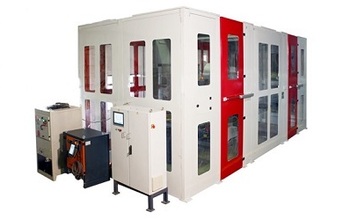
Manufacturing industry is undergoing a revolution in efficiency, quality and EHS but this is not case with the foundry sector, which has been lagging behind for still practicing age old methods, non-adoption of new techniques like robotics and automation.
Robotic automation has come a long way in the past few decades where robots are used in manufacturing setups for applications like welding and machine handling in automotive industry. Industrial robots are widely used in the foundry - iron and aluminium cast industries, including pouring, extraction and handling.
Fettling is a process of removing excess material from castings often formed by the die's parting lines during the casting process when molten material is injected into the die/mould. A process of removing excess material from casting formed by the divided lines by the casting process using robot as a positioning tool. It is the process carried out with consistent efforts with results emphasising on the establishment of technique and performance of the casting profile, which requires efforts of manual labour, working in unsafe and unhealthy conditions.
Fettling is one of the important activities in foundry but sadly neglected. Many leading foundries in the country consider fettling unimportant. Fettling is a process, especially in the iron casting industry, completely manual and labour intensive.
Many a times there are conditions where there is no sufficient light, unhygienic and unsafe working conditions, no safety, lack of proper tools and machines. Such situations need to be considered with utmost priority where fettling works becomes simple, easy that gives required output with desired quality with safe and healthy working conditions.
Fettling is the last process in most casting shops, after which the work piece is sent for machining in the machine shop. Operators use variety of tools, including belt grinders, files, chisels and hammers to fettle castings having the most complex shapes such as holes, recesses, inaccessible areas. Operators work in environmentally dangerous conditions such as temperature, fumes, dust etc. Considering the conditions machine selection must carefully consider the conditions specific to the deployment area to ensure reliability over a long period.
(Continued on the next page)
